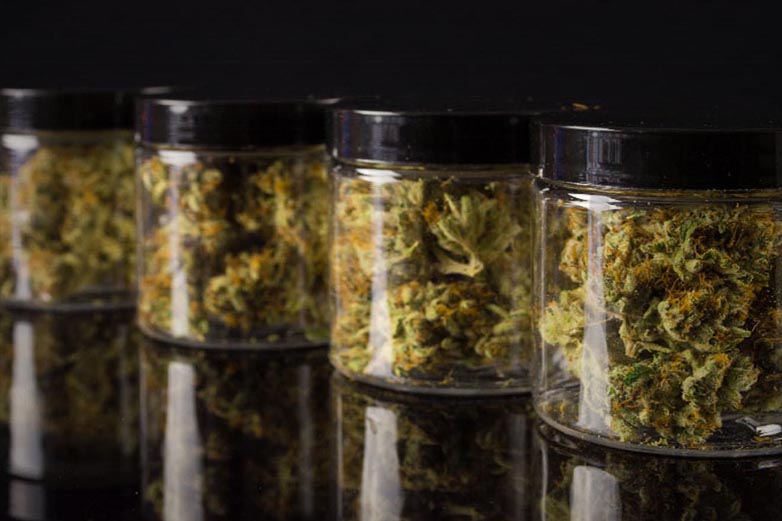
The Development and Benefits of THCA Flower
A New Frontier in Cannabis
Tetrahydrocannabinolic acid (THCA) is gaining attention as a significant cannabinoid in the evolving cannabis industry. Unlike its well-known counterpart, THC (tetrahydrocannabinol), THCA is non-psychoactive in its raw form, offering a range of potential health benefits without the high. This article explores the development of THCA flower, its unique properties, and the burgeoning benefits that make it a promising addition to the cannabis market.
Understanding THCA: The Precursor to THC
THCA is the acidic precursor to THC, found in the raw, unheated cannabis plant. When cannabis is harvested, THCA is the most abundant cannabinoid present. It is converted to THC through a process called decarboxylation, which occurs when cannabis is exposed to heat, such as during smoking, vaping, or cooking.
The chemical difference between THCA and THC lies in a carboxyl group (COOH) attached to THCA. This group prevents THCA from binding to the brain’s cannabinoid receptors, thus preventing the psychoactive effects typically associated with THC. However, THCA is thought to interact with the body’s endocannabinoid system in other beneficial ways.
Development of THCA Flower: Cultivation and Processing
The cultivation of THCA flower involves growing cannabis plants that are rich in THCA content. Selective breeding and advanced cultivation techniques are used to enhance the THCA levels in these plants. The focus is on preserving the raw state of the cannabis flower to maintain its high THCA content, avoiding the decarboxylation process that converts THCA to THC.
Growers harvest the cannabis plants at their peak, ensuring that the flowers retain their full cannabinoid and terpene profiles. Post-harvest, the flowers are carefully dried and cured in a controlled environment to prevent the degradation of THCA. This meticulous process ensures that the final product is rich in THCA and other beneficial compounds.
Health Benefits of THCA Flower
The potential health benefits of THCA are diverse and supported by preliminary research. While more studies are needed to fully understand its effects, existing evidence points to several promising therapeutic applications:
- Anti-Inflammatory Properties:
THCA has been shown to possess significant anti-inflammatory properties, making it a potential treatment for inflammatory conditions such as arthritis and inflammatory bowel disease (IBD). A study published in Phytomedicine found that THCA could reduce inflammation by inhibiting enzymes that promote inflammatory processes in the body. - Neuroprotective Effects:
THCA may offer neuroprotective benefits, protecting brain cells from damage and degeneration. Research in the British Journal of Pharmacology suggests that THCA could help protect against neurodegenerative diseases like Parkinson’s and Alzheimer’s by reducing oxidative stress and inflammation in the brain. - Anti-Nausea and Appetite Stimulation:
THCA has been found to possess anti-emetic (anti-nausea) properties, which can be beneficial for patients undergoing chemotherapy or suffering from conditions that cause severe nausea. Additionally, THCA may help stimulate appetite, making it useful for individuals with appetite loss due to illness or treatment side effects. - Analgesic (Pain Relief) Properties:
THCA may also act as an effective analgesic, helping to alleviate pain. Its anti-inflammatory properties contribute to pain relief, particularly in conditions characterized by chronic pain and inflammation. This makes THCA a potential alternative to traditional pain medications, which often come with significant side effects. - Anti-Proliferative Effects on Cancer Cells:
Emerging research indicates that THCA may have anti-proliferative effects, meaning it could inhibit the growth of cancer cells. A study in BMC Pharmacology and Toxicology found that THCA inhibited the growth of prostate cancer cells, suggesting potential applications in cancer therapy. - Antioxidant Properties:
The antioxidant properties of THCA can help protect cells from oxidative damage, which is linked to various chronic diseases, including heart disease and cancer. Antioxidants neutralize free radicals, preventing cell damage and contributing to overall health and longevity.
Consumption Methods and Product Forms
THCA flower can be consumed in several ways to harness its benefits without converting it to THC. Popular consumption methods include:
- Juicing: Fresh THCA-rich cannabis flowers and leaves can be juiced to create a nutrient-dense drink. Juicing preserves the raw cannabinoids, allowing consumers to benefit from THCA’s therapeutic properties without psychoactive effects.
- Tinctures and Oils: THCA can be extracted from the cannabis plant and infused into tinctures and oils. These products can be taken sublingually (under the tongue) for rapid absorption or added to foods and beverages.
- Topicals: THCA-infused creams and balms can be applied directly to the skin, providing localized relief from pain and inflammation without systemic effects.
- Capsules and Edibles: THCA can be encapsulated or infused into edibles, offering a convenient and discreet way to consume the cannabinoid. These products are formulated to avoid decarboxylation, preserving the THCA content.
Regulatory Landscape and Market Potential
The regulatory landscape for THCA is complex, as it exists in a legal gray area. While THCA itself is not psychoactive, its potential to convert to THC upon heating raises regulatory concerns. However, as the cannabis industry continues to evolve, there is increasing recognition of THCA’s unique benefits and potential therapeutic applications.
The market potential for THCA flower is significant. As consumers become more educated about cannabinoids and their specific health benefits, the demand for non-psychoactive options like THCA is expected to grow. This is particularly true for individuals seeking the therapeutic benefits of cannabis without the psychoactive effects of THC.
In Conclusion: A Bright Future for THCA
The development and benefits of THCA flower represent an exciting frontier in the cannabis industry. With its diverse therapeutic properties and non-psychoactive nature, THCA offers a promising alternative to traditional medications for a range of health conditions. As research continues to unveil its potential and the market adapts to its unique benefits, THCA flower is poised to become a valuable component of the cannabis wellness landscape.
In summary, THCA flower stands out as a versatile and beneficial product, offering natural relief for inflammation, pain, nausea, and more, without the psychoactive effects associated with THC. Its development and increasing popularity reflect a growing interest in the therapeutic potential of cannabis, heralding a new era of natural health solutions.